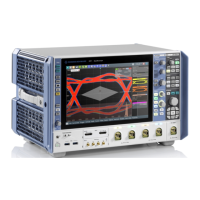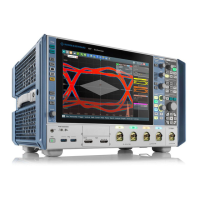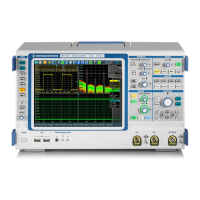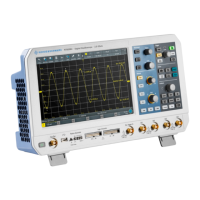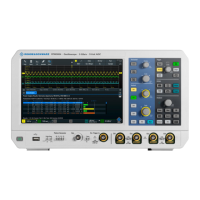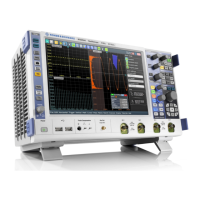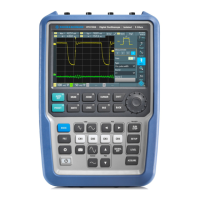Protocol analysis
R&S
®
RTE
518User Manual 1326.1032.02 ─ 20
The frame captions of the decoded signal show the symbolic label instead of the ID or
address values. Hence it is easy to identify the messages of the different bus nodes.
You can also use the label list to trigger on an identifier or address. Instead of entering
the value, you select the name, which is defined in the label list.
Available file formats are PTT, CSV, DBC (CAN only), and XML (FIBEX files, FlexRay
only).
Label lists are protocol-specific. Their contents are described in the corresponding pro-
tocol chapters:
●
Chapter 13.2.4, "I
2
C label list", on page 531
●
Chapter 13.5.4, "CAN / CAN FD label list", on page 578
●
Chapter 13.6.4, "LIN label list", on page 608
●
Chapter 13.7.3, "FlexRay label list", on page 627
●
Chapter 13.10.4, "ARINC 429 label list", on page 685
●
Chapter 13.9.4, "MIL-STD-1553 label list", on page 670
13.1.4.1 Content and format of the PTT file
Label lists are stored as PTT (protocol translation table) files. The PTT file format is an
extension of the CSV format (comma-separated values). You can edit it with standard
editors, for example, with MS Excel or a text editor.
The PTT file has three types of lines:
●
Comment lines begin with a hash character #. A hash character at any other posi-
tion in the line is treated like a standard character.
●
Command lines begin with a commercial at character @. An @ character at any
other position in the line is treated like a standard character.
●
Standard lines are the lines that not qualify as comment or command lines. They
build the core of the label list.
Command lines
Command lines define the version of the PTT file and the protocol name:
●
@FILE_VERSION: must appear exactly once in the file
●
@PROTOCOL_NAME: must appear at least once in the file. Thus, one file can
contain several label lists for different protocols.
# --- Start of PTT file
@FILE_VERSION = 1.0
@PROTOCOL_NAME = i2c
[... Label list for I2C]
@PROTOCOL_NAME = can
[... Label list for CAN]
# --- End of PTT file
Basics of protocol analysis

